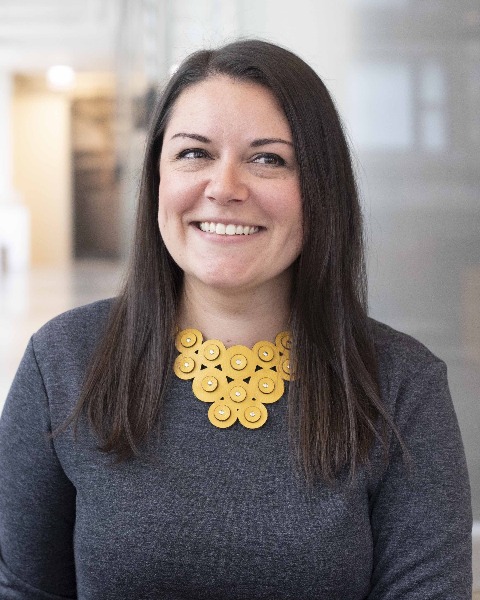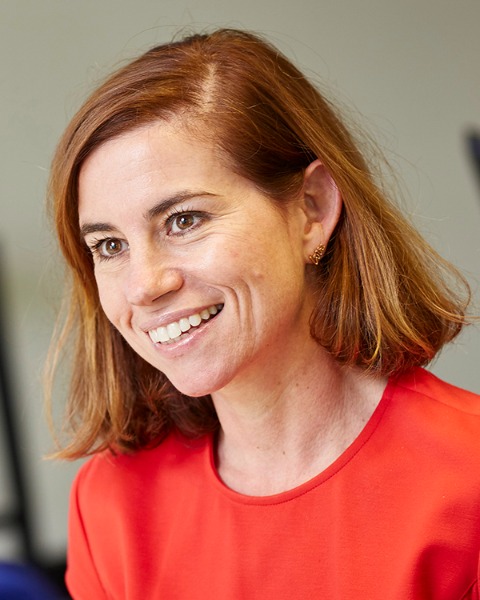
Are We Addicted to Our Workstations? How Design Can Improve Our Brain Health [HSW]
-
Register
- Attendees - $45
Are we addicted to our workstations? The modern workplace has thrusted us into multitasking ad nauseum - to be and do everything, everywhere, all at once - and it is taking a toll on our health. HKS and the Center for Brain Health at UT Dallas partnered to study the relationship between brain healthy behaviors and the design of workplace environments. The study included the Center's Brain Healthy Workplace program, which provided on-demand training on brain health strategies intended to facilitate peak performance. Our research found that not only is multitasking bad for us, but our workstations are multitasking alongside us. We found that 43% of employees frequently multitasked and 60% were dissatisfied with their control over their work environment. Employees that embrace flexibility say there are different types of work they do best at home versus in the office - what is preventing us from applying this strategy to the office itself? Our dependence on the workstation prevents us from asking WHAT we need to do before deciding WHERE best to do it. Although the standard workstation offers some level of flexibility in performing tasks, it does not cater to the specific needs for individuals to reach peak performance. Is it time to break the habit and rethink workplace design for better brain health? Can brain healthy design help us break the habit? Join us as we unpack how brain healthy workplaces can unlock new potential in commercial real estate.

Liz Fallon, AIA
Studio Practice Leader
HKS
Elizabeth Fallon, AIA, is the Interiors Studio Practice Leader at HKS Chicago. For Elizabeth, design is a means to uncovering solutions. Intrigued and energized by complexity, she believes no challenge is too large or complex to tackle. One of her greatest passions is shaping employee experience and how design can effectively contribute to that experience. In her role at HKS, Elizabeth is a lead contributor to the development of the firm's thought leadership, as well as a key collaborator with HKS Research. As a licensed architect, Elizabeth has spent over a decade delivering commercial interiors workplaces for clients all over the country. As a strong communicator and listener, she thrives on the relationships with her clients and partners to deliver effective and inspiring workplace experiences at all scales. Paired with strong creative and technical skills, her constant commitment to research, strategic thinking, and collaboration with her partners keep her inspired every day.

Susan Chung, PhD, WELL AP, ASID
Senior Research Program Manager
HKS
Dr. Susan Chung is the Associate Director of Research at HKS. Leading enterprise programs for deep-dive research and thought leadership, she strives to link design to outcomes by integrating actionable research into design. Susan’s experience in comprehensive workplace research studies in living laboratory settings speaks to her passion for translating research into action and advocacy for evidence-based and outcome-driven design practices. She previously worked as the Vice President of Research & Knowledge at the American Society of Interior Designers (ASID) leading impactful research to advance the built environment industry. Her scholarly research is focused on creative performance and its relationship with physical and social environmental conditions and received her doctorate in Human Behavior and Design from Cornell University.

Jennifer Zientz, MS, CCC, SLP
Director of Programs & Head of Clinical Services
Center for BrainHealth at The University of Texas at Dallas
Jennifer’s work focuses on the translation of Center for BrainHealth research to improve how people think, work and live. She administers performance-based assessments and facilitates training workshops that empower individuals across the lifespan to take the lead in strengthening their focus, mental efficiency, reasoning and possibility thinking.
Over the past 20+ years, she has played an instrumental role in researching, developing and testing BrainHealth’s proprietary, science-backed brain health assessments and protocols to produce measurable improvements in brain fitness. The assessments form a holistic composite called the BrainHealth® Index that is taken periodically to track change. The protocols, called Strategic Memory Advanced Reasoning Tactics (SMART™), are delivered as high-performance brain training. Both have been delivered to military leadership, active duty special operators, veterans and their spouses, law enforcement officers, corporate executives and leadership teams, community leaders, athletes and graduate students.
Jennifer leads teams of clinicians that administer and facilitate the BrainHealth Index and SMART. She is also responsible for development and oversight of training certification programs within the Center for BrainHealth.
Jennifer received her BS in Communication Sciences and Disorders from The University of Texas at Austin and her MS in Speech-Language Pathology from The University of Texas at Dallas.




